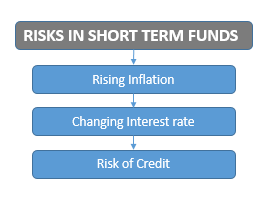Are You Aware of the Pros and Cons of Short Selling?
When talking about the world of trading and the stock Market, you are sure to come across people boasting adequate knowledge of buying low and selling high strategy. However, almost a few would be such who could be familiar with the short selling nitty and gritty.
With less information and knowledge pertaining to this method, most of the times, trade let go of excellent opportunities, perfect enough to help them earn profits even if the market is falling. But, one thing that you must not forget is that this strategy could be riskier.
Unlike traditional and mainstream trading, the profit is restricted, and the risk is unlimited. Hence, it is extremely essential to understand thoroughly before stepping into it.

What is Short Selling?
The short selling meaning can be defined as a trading or investment strategy that gambles on the decline of stock or security prices. This one is an advanced technique that often helps experienced investors and traders. While traders can use this strategy as speculation, Portfolio managers or investors use it as a windbreak against the risks of downside in either the same security or any relevant one.
With speculation, the possibility of significant risk comes into the picture. In this strategy, a position gets opened by borrowing stock shares or any other asset that an investor thinks can decrease in terms of value by a specific date, which is known as the expiration date.
And then, the investor sells these shares to buyers who are willing to pay the current market price. Before the borrowed shares can be returned, however, the trader bets that the prices will continue declining and that the shares can be bought at a lower cost.
Considering that an asset’s price can go up to infinity, risks of losses in short selling are supposedly unlimited.
Talk to our investment specialist
Pros of Short Selling
- There are always possibilities and opportunities to earn high profits.
- The strategy requires minimal initial Capital.
- It is quite possible to leverage investments.
Cons of Short Selling
- The strategy comes with potentially infinite losses.
- Having a Margin Account is necessary to trade with this strategy.
- The margin interest incurs with short selling.
Risks of Short Selling
Borrowed Money
This strategy is known as margin trading. This means when you are short selling stocks, you have to open a margin account, which enables you to borrow money from a brokerage with the help of investment in the form of Collateral. The moment you on margin, it could be possible that losses may go out of hand as you have to meet the minimum maintenance requirement, which is 25%. In case your account goes below that, you will be subjected to the margin Call and compelled to put more cash into the account to liquidate the position.
Timing Could Be Wrong
Even if a certain company is overvalued, it may take some time before their stock prices decline. Meanwhile, since you will be vulnerable to margin calls and interest, you could be called away.
Risks of Regulation
Sometimes, regulators may end up imposing bans on short trading in a certain sector. Or, it can even happen in the wider market to avert unwarranted and panic-stricken selling. Such undesirable actions can create a sudden increase in the prices of stocks, compelling short sellers to cover their positions at major losses.
What is the Ideal Condition for Short Selling?
As far as short selling is concerned, timing is extremely important. Typically, stocks decline faster than advancing. And, it is possible that a substantial profit may wipe out just within a few days or weeks. Thus, being a seller, you absolutely get no time to perfect the trade.
Moreover, entering a trade late can result in the significant Opportunity Cost of lost profits, considering that a huge part of the declining could already have taken place. Entering too early, on the other hand, may cause difficulties in holding the position since there are several potential losses and a lot of costs involved.
However, there are even such times when the shorting may improve. It can happen mostly in the following situations:
- In a Bear Market
- When market fundamentals or stock are deteriorating
- If the technical indicators have confirmed a bearish trend
- If the valuation has reached elevated levels
In a Nutshell
Most of the times, short selling is disparaged, and sellers are regarded as ruthless traders who are on a mission to destroy companies. However, in reality, short selling offers liquidity. This means, there are enough buyers and sellers who can avert bad stocks from an increase in over-optimizes. This activity is one legitimate information source regarding the sentiment of market and demand for a specific stock. Without this proper information, investors could go toward the negative path and may earn a bad name. Thus, being cautious is extremely important.
All efforts have been made to ensure the information provided here is accurate. However, no guarantees are made regarding correctness of data. Please verify with scheme information document before making any investment.
You Might Also Like












